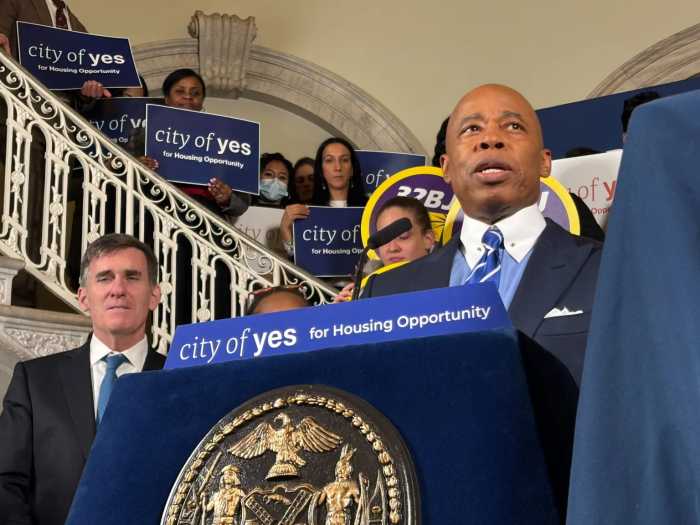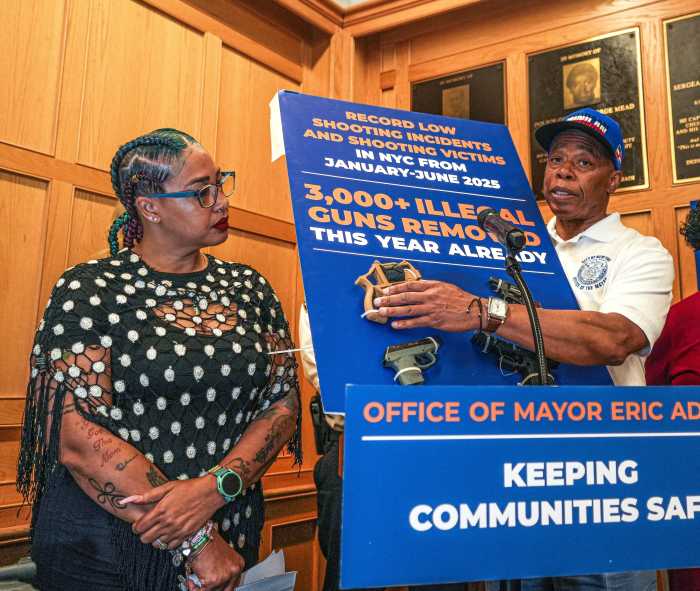That’s the question posed to the audience of mostly college students by Galen Baughman, a Soros Justice Fellow and the final speaker at the City University of New York TEDx talks at the Borough of Manhattan Community College a few weeks back.
TEDx talks are known for introducing new speakers with new ideas on everything from tech, to teaching, to society. But Baughman was the first TEDx presenter to address the issue of sex offenders from an unusual viewpoint:
He is one. And he must register as a sex offender forever.
His crime?
He had consensual sex with a teen when he was a teen. He was 19, his boyfriend, 14. They had sex once. It was consensual. The younger teen did not want to prosecute, but his parents did.
Had Baughman and his boyfriend slept together in another country — Canada, for instance — it would not have been considered a criminal act. But here, Baughman informed his audience, his crime resulted in a prison sentence.
He served nine years.
Four and half of those were in solitary.
Just when he was about to be set free, well, that’s what Baughman came to talk about.
“Three and a half years ago,” the 32-year-old told the audience, “I was sitting alone in a cell in Arlington, Virginia, waiting for a trial that would determine whether I would spend the rest of my life in prison.”
See, Baughman had originally been handed a six-and-a-half year sentence. But when it was over and he was about to be released, the authorities informed him that they considered him a violent sexual predator too dangerous to let go. As it turns out, the state can lock up “violent predators” indefinitely. The legal term for this is “civil commitment.” The person is kept behind bars to get “treatment” — except that treatment looks exactly like prison. Because it is.
How does the state get away with keeping some people for years — sometimes decades — after their release dates?
It plays on the public’s fear of sex offenders, Baughman explained. Politicians score points by keeping sex offenders locked up. It sounds so good. It is for the sake of our children!
The problem is that once a person gets the label “sex offender,” the public ceases to consider that person a human. In most people’s minds, a sex offender is a monster out to rape little kids. The fact that Department of Justice reports that sex offenders actually have the lowest recidivism rate of any criminals other than murderers is not well known.
What’s worse, “The label ‘sex offender’ is a made-up category,” Baughman continued. You can get labeled a sex offender for raping a toddler — or for sleeping with your freshman girlfriend when you’re a senior. There are people on the sex offender registry for urinating in public. For visiting a prostitute. For streaking. Teens even get on it for sexting.
“We brand all these people the same. And once they get that label we treat them all as if we know what they’re going to do next,” he said.
We treat them as if they’re going to hide in the bushes and pounce on a kid walking home from school. Even if they never did anything remotely like that.
That’s what the state decided about Baughman: Since he was officially a sex offender, he was automatically a menace to society. At his civil commitment trial, the state argued that he suffered from a horrible mental illness, which caused him to be attracted to sexually mature teens.
At that, the audience of mostly college students burst out laughing — they probably suffered from the exact same thing.
Luckily for Baughman, his jury concluded that this made-up disease (it isn’t in the psychiatric diagnostic manual) was ridiculous.
Because our laws are so overly broad and because so few people commit a new crime after release, Baughman told the crowd, a child is “more likely to be labeled a sex offender than to be abused by a sex offender.”
Baughman added that he is the only person in Virginia to have successfully fought indefinite detention via a jury trial and won. Another 5,000 people nationwide are languishing past their release dates, most because they carry the label “sex offender.”
But if all it takes to get that label is to be attracted to sexually mature teens, or to sext, or streak, maybe, indeed, we’re all sex offenders — who just haven’t been caught.
Lenore Skenazy is a speaker, author. and founder of the book and blog “Free-Range Kids.”


































